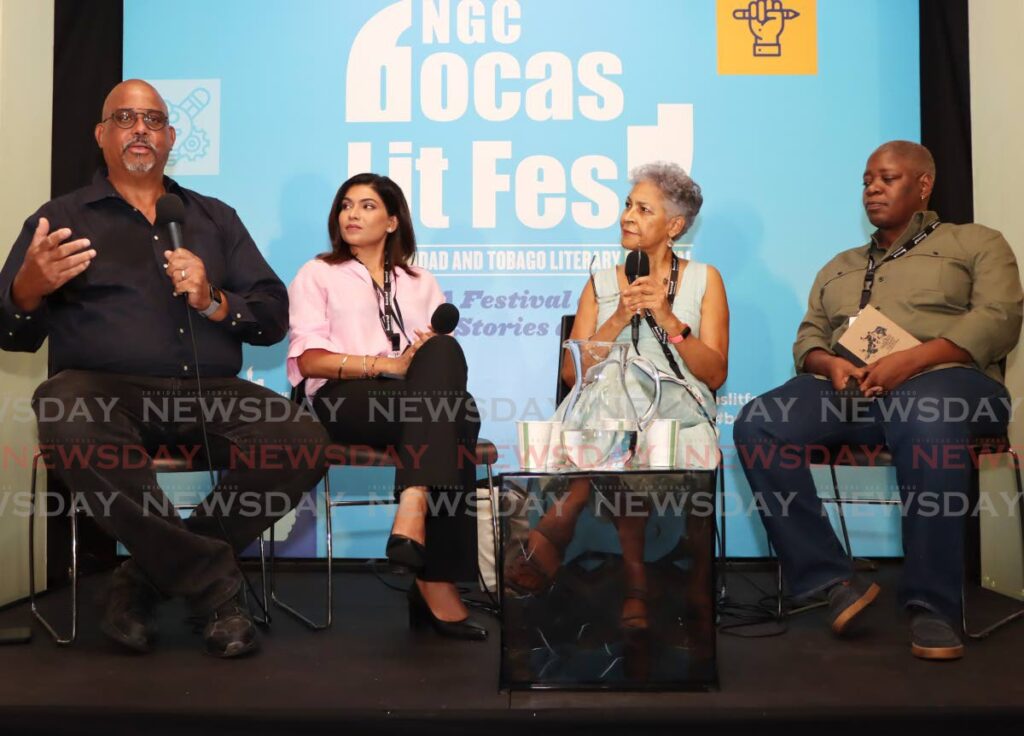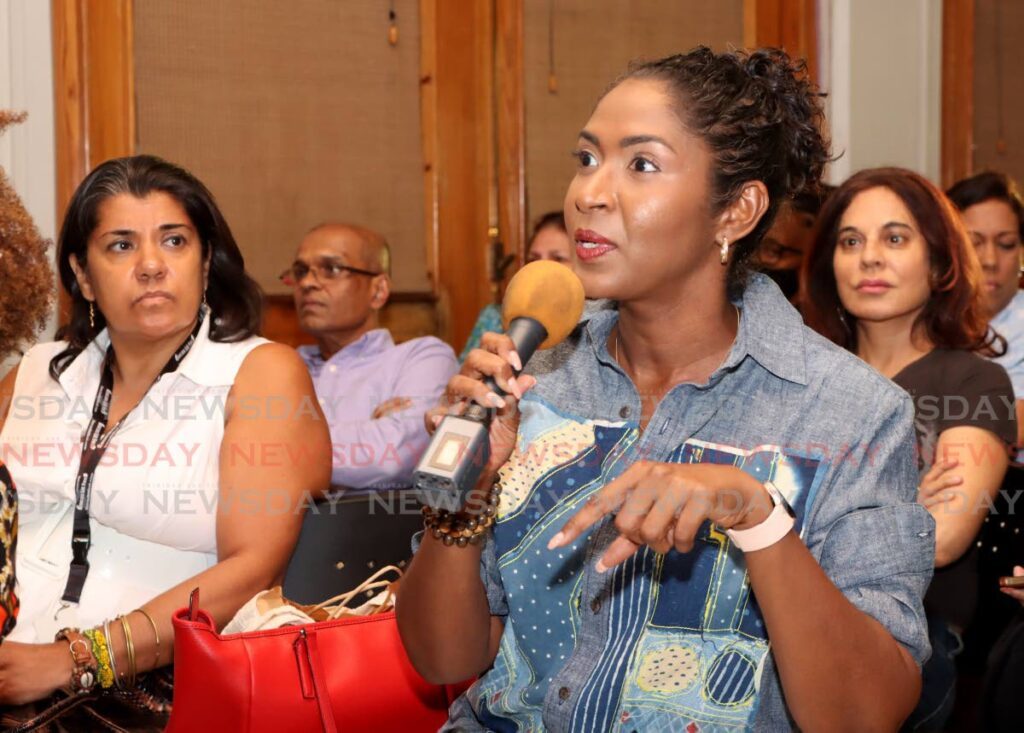NGC Bocas Lit Fest panellists mull future of newspapers

AMID falling consumption of traditional media, owing to several factors, one local columnist has suggested a special tool to help retain readership/viewership – empathy.
The suggestion came from Newsday columnist Mark Lyndersay in a panel discussion of Friday at the Bocas Lit Fest at the Old Fire Station in Port of Spain.
Other panellists were festival founder Marina Salandy-Brown (also a Newsday columnist), investigative reporter Asha Javeed and journalist Franka Philip.
The official theme under discussion was: They Don’t Write Them like They Used to: A Discussion on the Present and Future of the Newspaper Column.
Commenting on news presentation in general, Lyndersay said, “From the point of view of the audience, today’s consumers want to get information from a person they have empathy with.”
He said news consumers were keen to know the values, positions and backgrounds of news reporters.
Citing a recent survey by the UK’s Financial Times, he said, “News is becoming really personal. People pick and choose what news they consume.”
He advocated “clear, distinct personalities,” having a very obvious approach which speaks to a part of the audience that responds to them.
In the open-mike session, Lyndersay said youngsters today get their news by "capsulising" it from all over the place.
University of Trinidad and Tobago teacher Rolly Dominic Hosein said at first blush modern youngsters have little interest in news stories and have very little opinion, as they do not delve into the news. However he said that based on his experience, when they are guided to start to read news stories, a change takes place.

He considered how news agencies should better present themselves online, saying,”We have a little more work to do.”
Salandy-Brown said media changes were now happening “in a context of people wanting to know less and less.”
She recalled talking to Ivy League professors who were literally pulling out their hair at their students’ lack of interest.
“They do not believe in history. They do not want to know what happened.”
She wondered how to get students to analyse things, when they wish to read articles only 100 words long.
Noting a drop in US newsroom employment from 450,000 staff in 1990 to 183,000 in 2016, she said, “It just feeds into what is happening today.”
Mulling the future of mass media, she ventured, “Maybe there is no future.”
Salandy-Brown asked why newspapers were still around if they were not making much money, with one local paper complaining of losses.
Lyndersay replied,”This is an engine running, and you keep the engine running as long as possible.”
Philip said newspapers serve to hold powerful people to account.
Salandy-Brown said newspapers ‘break” stories – far more so than radio or television – and create platforms for discussion on a national level, while also helping to shape TT’s cultural landscape.
Javeed and Philip reckoned Trinidad and Tobago had too many newspaper columnists. Philip hailed the columns of the late BC Pires and Keith Smith, while Javeed said she reads Raffique Shah’s column to get his perspective on things.
Lyndersay said columnists can express strong opinions on matters of fact, carry out investigations or explanations, and excite and engage their readers.
Salandy-Brown said former columnist Jeremy Taylor said columnists had to have good quality writing, fresh thought, have something worth saying, be well-informed and be able to tell the truth even about themselves.
“That is one of the reasons people liked BC.”
However, she also said nowadays columnists were cautious owing to fear of a backlash against them.


Comments
"NGC Bocas Lit Fest panellists mull future of newspapers"